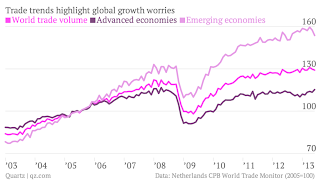It’s been a busy week in the world of Middle Eastern politics, or more accurately it’s been a busy week in the world of Shia politics. The Islamic world is not homogeneous, with a number of factions dating back to first days of the religion. Today the intense rivalry between Islam's two big sects, the Sunni and the Shia, shapes the politics of the Islamic world. Recently a potent mix of religion and politics has sharpened the divide between Iran’s Shia government and the Gulf States, most of which have Sunni governments. Things run pretty deep between the two sects as many Sunnis do not consider Shia to be proper Muslims. So what divides Sunni and Shia? On the death, in 632, of Islam’s founder, the Prophet Muhammad; Arabs who followed him were split over who was the rightful heir to the prophet. Abu Bakr, a friend of the Prophet and father of his wife Aisha had the majority backing and this sect became known as the Sunnis and today they make up 80% of Muslims. Others thought Muhammad’s family the rightful successors. They claimed the Prophet had anointed Ali, his cousin and son-in-law—they became known as the Shia. As time went on the religious beliefs of the two groups started to diverge.
Today the world’s 1.6 billion Muslims all agree that Allah is the only God and Muhammad his messenger. The Sunnis rely heavily on the practice of the Prophet and his teachings, the Shia see their Ayatollahs as reflections of God on earth. This has led Sunnis to accuse Shia of heresy, while Shia point to Sunni dogmatism. Being the minority party the Shia have been careful not to be drawn into large scale conflict with the Sunni’s, although the Iran Iraq war in the 80s was an exception to this pragmatism. The "Shia Crescent" runs from Iran, through Syria to Hizbullah in Lebanon and is at the centre of much of the trouble in the region today.
 |
| Shia Muslim distribution |
While Syria has dominated the world news there has been an interesting development in Iran. Hassan Rohani, Iran’s sole moderate candidate has won the presidential race. It seems that the electorate in Iran is tired of the grinding of poverty that has characterised the rule of the departing premier Mahmoud Ahmadi-Nejad. Mr Rohani is backed by two former presidents Akbar Hashemi Rafsanjani, a centrist, and Mohammad Khatami, and these reformist, both called on their supporters to vote for Mr Rohani and help the country distance itself from radicalism. Mr Rohani has promised to establish a government that will save the country’s economy and help resolve its fractured relationship with the western world to ease international sanctions. There are obvious concerns as many voters have bitter memories of the last elections in 2009 when they believe their votes were stolen by Mahmoud Ahmadi-Nejad, although the transition seems to be going smoothly. Mr Rohani is not a true reformer but he has used the campaign to raise many concerns of the modernisers.
Meanwhile with unenviable timing President Barack Obama’s has decided to send unspecified “direct military support” to Syria’s Sunni rebels ramping up the stakes with Shia globally (The Assad Regime is Shia), just at the moment when moderates need encouragement in Iran. The evidence that has been used to give cover for this active participation (use of poison gas) seems pretty thin and is strangely reminiscent of the ‘weapons of mass destruction’ ruse used in Iraq. Despite the opportunities to further the moderates cause in Iran it seems that Obama wants to keep up the Presidential tradition of starting an unwinnable war, that has been in place since the time of Bill Clinton.
Sunni-Shia tensions became centre stage after the US-led invasion of Iraq in 2003 that catapulted the Shia majority in Iraq to power. Iraq became a sectarian bloodbath, with Christian communities caught between Sunni and Shia bloodletting. Syria is now in the same place and the last thing we need is for the USA to be taking sides. Neutrality is particularly important as the sectarianism is the consequence not the cause of this conflict, which started as a civic uprising against the Assad family (part of the Arab Spring). Obama is getting into very deep water as he will be directly attacking Hezbollah, Iran’s Lebanese proxy, as well as the Shia Islamist government of Nouri al-Maliki in Iraq.
What no one in the Pentagon can tell us is the impact this direct attack on the Shia world will have on neighboring states such as Turkey where the Sunni ruling party of Recep Tayyip Erdogan already have major issues with the minority Shia population that make up a fifth of the country’s population. Mr Obama is belatedly entering a very complex geo-religious drama and he would be well advised to leave well alone.





























